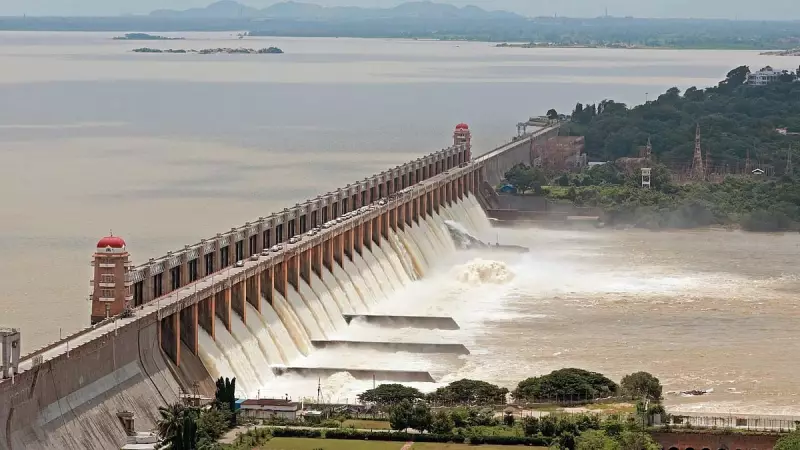
In a devastating blow to Karnataka's agricultural community, relentless heavy rains have transformed the Tungabhadra river basin from a fertile paradise into a watery graveyard for standing paddy crops. Farmers across the region are staring at massive financial losses as their nearly-ready harvest lies completely destroyed.
Nature's Wrath Unleashed
The continuous downpour over recent days has submerged thousands of acres of paddy fields across Harihar, Harapanahalli, and surrounding regions. The timing couldn't be worse – with the crop just weeks away from harvesting, the damage is virtually total.
Farmer Distress Reaches Breaking Point
Local agricultural communities are in a state of shock and despair. Venkatesh Gowda, a farmer from Harihar taluk, expressed the collective anguish: "We invested everything – our savings, our labor, our hopes. Now we're left with nothing but flattened crops and mounting debts."
Economic Impact Assessment
The scale of destruction is staggering:
- Thousands of acres of paddy completely destroyed
- Financial losses running into crores of rupees
- Entire season's income wiped out for hundreds of families
- Secondary impact on agricultural laborers and local economy
Administration Responds to Crisis
Local authorities have swung into action, with teams conducting ground surveys to assess the exact extent of damage. The district administration has promised to expedite compensation claims and work with insurance companies to provide relief to affected farmers.
Crop Insurance: A Ray of Hope?
While many farmers had enrolled in government crop insurance schemes, the claims process often moves slowly. Agricultural department officials have assured farmers that their cases will be prioritized, but the immediate financial crisis remains acute.
Broader Implications for Karnataka Agriculture
This disaster highlights the increasing vulnerability of Indian agriculture to extreme weather events. The Tungabhadra basin, traditionally known for its reliable agricultural output, now faces questions about climate resilience and disaster preparedness.
As farmers begin the heartbreaking task of clearing their destroyed fields, the larger question remains: How can India's agricultural sector better prepare for such climate-induced catastrophes in the future?





